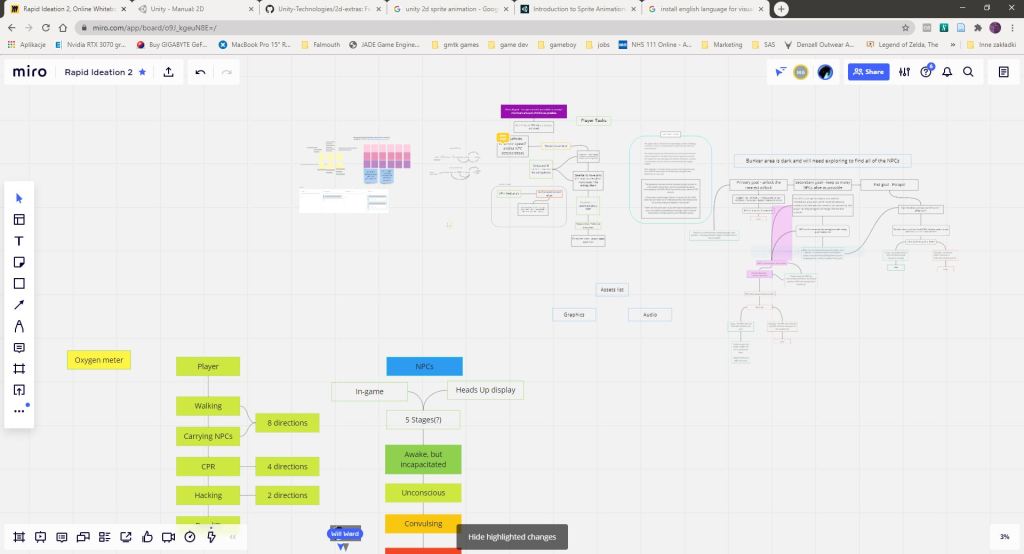Category: Development Practice
[CRJ12] Finale
The last week of the module has been an opportunity to look back at the progress made during my studies, as well as to make sure I am prepared for what lies ahead.
Continue reading “[CRJ12] Finale”Expectations from next module
In January, I will begin study on the Game Development module.
The module documentation outlines a course that is focused on both management and development, with the latter places in the context of both technical and artistic disciplines (Falmouth University 2020). I speculate that I will have the opportunity to take time and focus on separate elements such as graphics, code quality, level design etc. in more depth, one at a time. This would be in contrast with the rapid ideation sessions, where I had to apply a surface-level understanding of the concepts to produce “all-in-one ” prototypes quickly.
Continue reading “Expectations from next module”[CRJ11] RealWORKS
This week’s material was supplemented by The Art of the Approach course on RealWORKS, the University’s career training portal. On the course, I worked through the topics of CV writing, opportunity spotting, researching employers, building a LinkedIn profile, and Cialdini’s principles of persuasion.
Continue reading “[CRJ11] RealWORKS”[CRJ10] Agile Practice
This week’s learning material explored the Agile manifesto and values, the process of envisioning after idea generation, and concepts related to effort estimation.
While taking notes, my thoughts often went back to compare this knowledge with my personal experience of Agile; trying to examine how close the teams I have worked in came to aligning themselves with its values and principles.
Continue reading “[CRJ10] Agile Practice”Challenge activity – persona generation
My artifact: Seven Skies game concept, in mobile game format.
______________
(Karras et al. and Nvidia 2018) | Connor Philips Hobbyist board game player 30, male, British, white, married, Bachelor’s degree (H. 2016) |
“I play board games with friends regularly, so I’m used to complex rules and long set up times. But that requires planning a whole evening in advance. I wouldn’t mind something simpler I could just drop in and out of on my phone, when I’m out and about; to get that quick board game fix.”
Continue reading “Challenge activity – persona generation”[CRJ9] Communities of Practice
This week, I presented the results of our final rapid ideation session with Will Ward. I also studied concepts related to communities of practice – groups that meet and engage in knowledge and experience sharing based around a common topic or problem (Pyrko, Dörfler and Eden 2016: 389-409). I reflect on my experience with both. I also took part in a short study session with fellow students.
Continue reading “[CRJ9] Communities of Practice”Participation observation – the Game Dev League
The Game Dev League is a Discord server for anyone interested in game development. It is open to the public, and currently hosts a few thousand members who describe themselves as coders, artists, game designers, sound designers, or simply students. Membership is free and open to anyone after a simple account verification, and the server is supported by optional donations and profit from associate web links.
Continue reading “Participation observation – the Game Dev League”Outpost – game submission

The player takes control of the only healthy survivor following a meteor crash at a remote bunker underneath an Antarctic research base.
The meteor impact has affected the rest of the research team and making them critically ill and need of urgent evacuation. The impact has also damaged the bunker AI systems, causing all of the doors to lock and seal and shut down the oxygen supply…
Their objective is simple, keep everyone alive by performing First Aid/CPR and escape the Airlock by hacking the door before the air runs out!










